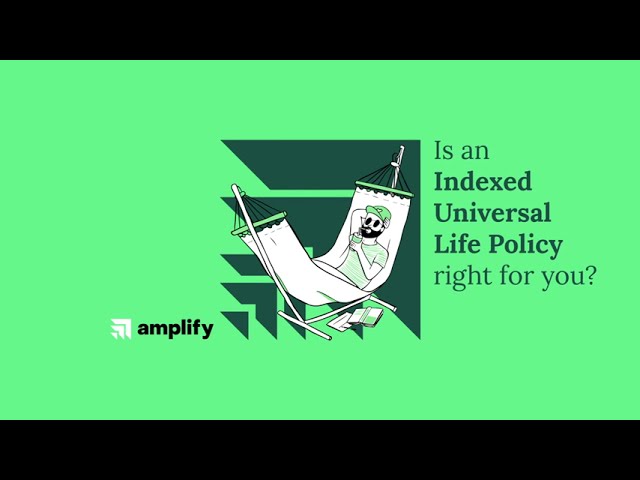Here are 5 simple questions to help you find out.

1. Do you want your family to be covered for more than 20 years?
IULs offered by Amplify provide up to $5 million in death benefit, and unlike term coverage, this protection doesn’t have an expiration date.
You can think of term life insurance like renting a house. You essentially rent the coverage for a period of time, say 20 years. If you die in those 20 years, your family gets the death benefit. If you live more than 20 years, your policy isn’t worth anything.
Indexed Universal Life policies are like buying a house. Just like a mortgage, you’ll pay into this policy and you own the policy. This means if you die in a year or in 50+ years, your family will receive the death-benefit and, depending on the policy you pick, the cash-value your active policy has accrued.**
2. Do you prefer stable investments?
An IUL’s cash value performance is tied to indexes like the S&P 500. If the value of the policy’s index goes up, your policy cash value will go up (often with a cap of up to 7-9%). If the index goes down, you’re protected because you have a guaranteed floor, (often 0%). That’s what makes IULs so stable relative to the market.
3. Could you use more money for retirement, your children’s college tuition, long term care, etc…?
If so, an IUL could help you grow tax-efficient wealth that you can use to pay for these things while you’re still alive.
Universal Life policies include the opportunity to build cash value because your monthly premium covers the cost of insurance and the rest can earn interest and returns. With many IUL policies, the cash value may be withdrawn or borrowed against to pay for things like retirement, tuition, or long term care.*
Here’s how it works. You’ll start making monthly payments on your new IUL policy. The portion of your payment that is invested becomes what’s known as cash-value. Let’s say, in 25 years or so, you wanted some additional money to pay for retirement. You could loan yourself money from your cash value to do this.
You may be asking “Why would you do it as a loan”? It’s because loans provide a very tax-efficient method for distributing the money. Similar to how you don’t pay taxes on the money a bank loans you to buy a home, you likely won’t have to pay taxes on this money because it too is a loan. (Important note, helping to pay for retirement is just one example. You’re essentially loaning money to yourself so you don’t have to give an explanation for how you plan on using it).
This unique distribution method is what separates IULs from other wealth building tools. You can build cash value for years, both through the amount you've paid into the policy and potential returns, and then loan that money to yourself through this tax-advantaged mechanism.
If you die with an outstanding loan, the amount can simply be taken from the payout your beneficiaries receive.***
4. Are you reasonably healthy and between the ages of 25-55?
If so, that’s great because it’s usually easier to qualify for an IUL when you’re younger and healthier.
5. Do you make $75,000 a year or more?
Higher-income individuals may benefit the most from the tax-efficient gains IULs typically produce.
Nobody knows what your tax situation will look like in 20 or 30 years. Depending on political tides, your future income, etc… you may be in a higher tax bracket in the future. If so, your IUL will be an important asset because it may be one of the few, if not only, vehicles in your portfolio that gives you the flexibility and potential option to access money without having to pay taxes and a withdrawal penalty.
Please see your policy for additional information.
** As long as your premiums are paid. And, we also need to call out that if you live to be older than 121 some policies may not pay out…. But if you do, I mean, congratulations, that’s awesome!
*** A policy loan may reduce the cash value of the policy and increase risk of lapse. If the policy is not properly funded, the policy will lapse and the loan will not be repaid.